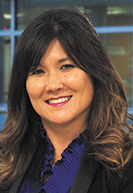Subscriber Benefit
As a subscriber you can listen to articles at work, in the car, or while you work out. Subscribe Now
By Patricia Kinney
Many trainings and conversations around DEIAB (diversity, equity, inclusion, access and belonging) barely scratch the surface of the complexity of issues and the people involved. They attempt to treat symptoms, not problems. Even with the best intentions, a one-time DEIAB training may be effective in increasing knowledge, but it alone will not lead to long-term resolution of the issues. At worst, the training backfires, leaving the participants hurt, resentful and defensive. I refer to DEIAB as “heart work” because it starts with the individual and is an ongoing part of personal and professional development. This rarely happens after attending one training session or reading one article (including this one). It is much like working on a new skill such as learning a new language or adding a new habit such as incorporating an exercise regimen.
Ted Lasso can help make the work easier. I love the Apple TV+ show “Ted Lasso” and its one-liners, one of which is pertinent to DEIAB work: “be curious, not judgmental.” DEIAB issues are multifaceted and encompass many forms. They impact us all. It is important to understand how our experiences and personalities influence our perceptions and interactions with others, in addition to recognizing how cultural norms and various societal affiliations further impact perceptions, interpretations, values and actions.
From the novice to the seasoned professional, being curious, not judgmental, will allow us to do the heart work, open ourselves to new possibilities and perceive the world around us in a new way. While the work will be difficult at times, remember to take a moment to pause and acknowledge that practice does not make perfect.
Take a moment to pause
While being curious, take a moment to pause before making a judgment. We all perceive the world through the lens of our lived experiences. We tend to judge others by the standard of our preferences, fill in stories with inferences based on our own experiences and box them within the framework that is “normal” for us. We observe familiar behaviors and assume similar meanings; however, the meanings could be very different. In many cultures, smiling is nonverbal communication interpreted as happy or friendly. In other cultures, people may be happy but do not smile, or a smile may indicate embarrassment or anger. When you notice you are making a judgment, pause, be curious and ask yourself, “What are the stories I am telling myself? What factors, such as cultural or personal, may be influencing the circumstances?”
Practice does not make perfect
Is there a skill at which you would consider yourself an expert? Do you remember what it was like to be a novice? As with picking up a new skill, DEIAB work takes practice, curiosity and being genuinely interested in learning. Even people who are the most skilled in DEIAB work are constantly learning and making mistakes. This work is not about striving for perfection.There will always be new terms to learn and historical practices to be challenged. We cannot train away biases, but that does not mean we do nothing to change them. We look internally at our biases and assumptions and explore their origination. We learn skills to identify and interrupt them. With practice, we get better at identifying them when they show up and make a conscious decision to address them.
There may be a wide range of emotions that arise while doing DEIAB work, such as ambivalence, anger, frustration, sadness and disbelief. Take notice of the feelings and emotions and be curious as to the root cause of them. What role are you playing in the issue? During dialogue, are you listening to respond or to understand? Are you trying to be right? Is there a shared meaning in the terms being used? It is difficult to be solution-focused when people do not know what white privilege is or if it is something they have, or if people become defensive and shut down dialogue and learning at the mention of white supremacy or any of the “isms.”
Honor the feelings and emotions that show up in ourselves and others. They may be indicators of growth to be embraced with courage and curiosity, not fear or avoidance.
We all show up at different points on this journey. If we take a moment to pause and remember we are not striving for perfection, we may find ourselves open to observing things in a new way and give ourselves and others the grace and space to learn. Be curious, not judgmental!•
• Patricia Kinney is an alum of Indiana University Robert H. McKinney School of Law and serves as its assistant dean of diversity and inclusion. She is involved in various collaborations to further DEIAB initiatives. Opinions expressed are those of the author.
Please enable JavaScript to view this content.
